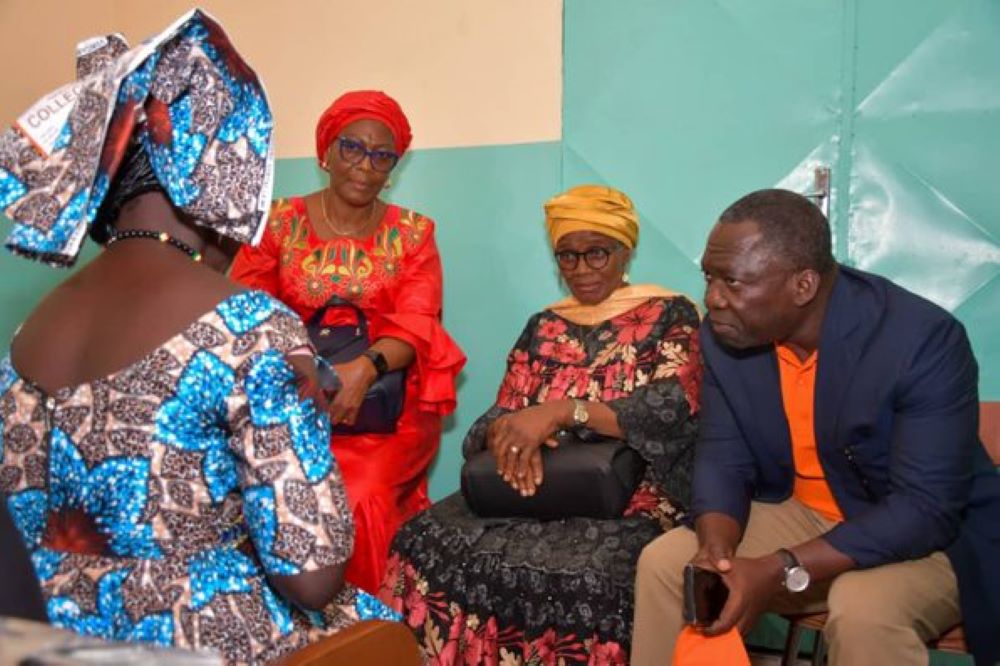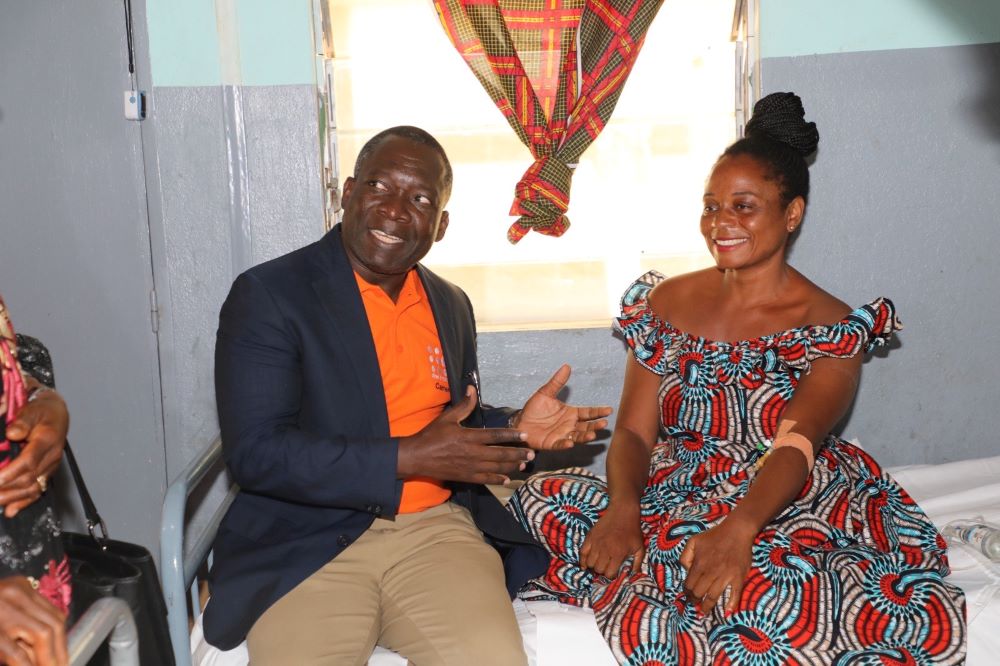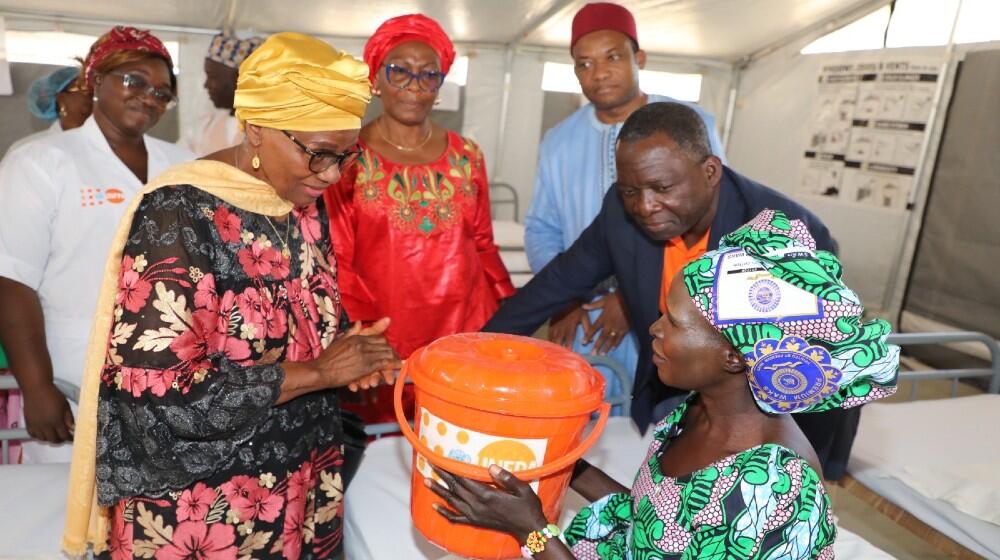Mokolo, Cameroon – In the heart of the humanitarian crisis gripping Cameroon's Far North region, Chantal Daguidam's story shines as a testament to the resilience and the transformative power of access to healthcare. At 22 years old, Daguidam suffered an obstetric fistula, a devastating childbirth injury often caused by prolonged labor without access to timely medical care.
"Our village was attacked, we lost everything," Daguidam confides, her voice heavy with the weight of past trauma. Married too young, she endured a difficult childbirth that left her with more than just physical wounds. "I wandered, lost, heartbroken. I thought my life was over." The incontinence and social stigma associated with fistula left her isolated and despairing.

But Daguidam's story doesn't end there. Thanks to an obstetric fistula repair campaign organized by UNFPA at the Mokolo Regional Annex Hospital, she found a chance for healing. "For me, it's a miracle that's happening!" she exclaims, her face now radiant with hope.
Daguidam's experience underscores the critical situation faced by many women and girls in the region. Dr. Sennen Hounton, UNFPA Regional Director for West and Central Africa, recently visited the Mokolo Regional Hospital Annex, meeting with some 50 women like Daguidam, undergoing post-operation care. There, he witnessed the dedication of midwives working tirelessly to provide essential sexual and reproductive health services.
"We have lost everything," one woman shared with Dr. Hounton, echoing Daguidam's experience of loss and displacement. "But we are resilient. We are survivors. We will find a way to move forward."
Dr. Hounton reaffirmed UNFPA's commitment to supporting those affected by the crisis, particularly women and girls facing heightened risks of gender-based violence and limited access to healthcare. "UNFPA is dedicated to ensuring that even in the most challenging circumstances, women and girls can access the healthcare they need," he stated. "We are working with partners to deploy midwives, establish mobile clinics, and provide safe spaces where women and girls can receive the care and support they deserve."

Daguidam's journey towards healing is not just about physical recovery. UNFPA is also providing her with psychosocial support and opportunities for economic reintegration. She dreams of learning to sew or pursuing another trade to regain her independence and dignity. "I want to shout to the whole world that fistula is not inevitable!" she declares, her voice filled with newfound strength. She wants to use her experience to help other girls avoid the ordeal she endured.
Daguidam's story, interwoven with Dr. Hounton's visit and the UNFPA's ongoing efforts, paints a powerful picture of hope amidst crises. It's a call to action to intensify efforts to prevent fistula and ensure holistic care for affected women, leaving no one behind. As Dr. Hounton emphasized, "UNFPA is more than just a humanitarian actor. We are working to create a world where every pregnancy is wanted, every childbirth is safe, and every young person's potential is fulfilled. Even in the face of climate change and conflict, we remain committed to this vision."
In a region marked by conflict and displacement, Daguidam's story, amplified by UNFPA's commitment, serves as a beacon of hope, reminding us of the resilience of the human spirit and the transformative power of collective action.


